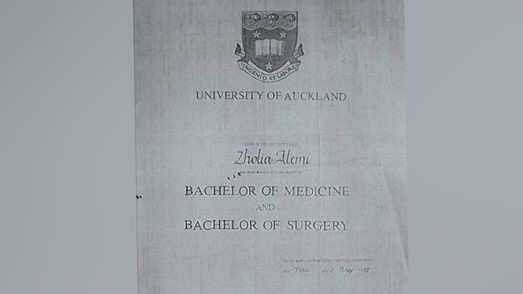Preventing ID & CV fraud – Learning from recent cases
It has been in the news recently that Zholia Alemi, who had faked a medical degree certificate from New Zealand 25 years ago to work as a psychiatrist for more than two decades in the NHS in the UK, has been jailed for seven years for 13 fraud offences, amongst other offences.
How did this happen?
Zholia Alemi worked across the UK after claiming to have qualified at the University of Auckland, but how could this have happened? She had started her medical studies but had not completed them. She provided a forged medical certificate and a verification letter, which included a misspelling of “verify”.
ID checks and Right to Work checks are undertaken on all new starters to the NHS, and this has been the case for many years. It is a comprehensive system where the applicant must provide a combination of proof of ID and proof of address documents (passport / Birth Certificate / Residence Permit / Utility Bill / HMRC letter etc). This process does not include any check on qualifications, but qualification certificates are still verified by the recruitment team.
What has already changed?
In the case of professionally qualified clinical staff (Doctors, Nurses and allied professionals, their governing bodies, General Medical Council (GMC), The Nursing & Midwifery Council, and The Health and Care Professionals Council, provide services where NHS organisations check with the governing body whether an applicant in these areas is qualified (and not disqualified).
The GMC have already admitted failings in their historic system in relation to Zholia Alemia, and instigated further checks on 2,500 other historic foreign doctors working within the NHS; but what about non-clinical roles? According to recruitment statistics there are in excess of 500,000 non-clinical staff currently working in the NHS, and many of those will be qualified, whether that be in accounting, IT, secretarial skills, procurement or a broad range of other areas, including Accredited Counter Fraud Specialists.
Kevin Howells, Anti-Fraud Manager, has said: “We provide Right to Work / Employment Check training for our clients both half or full day versions, and in a session a few years ago we discussed how the recruitment team would check the qualifications of an IT professional applicant if the qualification certificate was in Arabic. The answer was that they would get the applicant to translate it for them, not quite the answer we were expecting!”
What more should be done?
If a Doctor has been working for the same NHS organisation for 25+ years, the checks on their application process then were not as stringent as they would be now, in terms of ID or qualifications, and there is the possibility that they may not be who they say they are, and may not be a qualified Doctor.
Kevin Howells, Anti-Fraud Manager, suggests: “Perhaps there should be periodic re-reviews of qualifications as/when people progress through an organisation (i.e. stay with the same employer for years). A subsequent check might pick up something that was missed in a previous check.
Similarly, robust systems for checking qualifications for non-clinical roles should also be reviewed. There are paid-for services that can verify degree qualifications in the UK, but are there always fool-proof verification systems for unusual qualifications, those that are not often seen? If I provided my original Accredited Counter Fraud Qualification certificate, would someone in Recruitment know what to look for and whether is it genuine?”
For more information on this case (and more recent cases), as well as other Fraud news and advice, read Talking Fraud.
For more information about our anti-fraud service, contact Darrell Davies.
